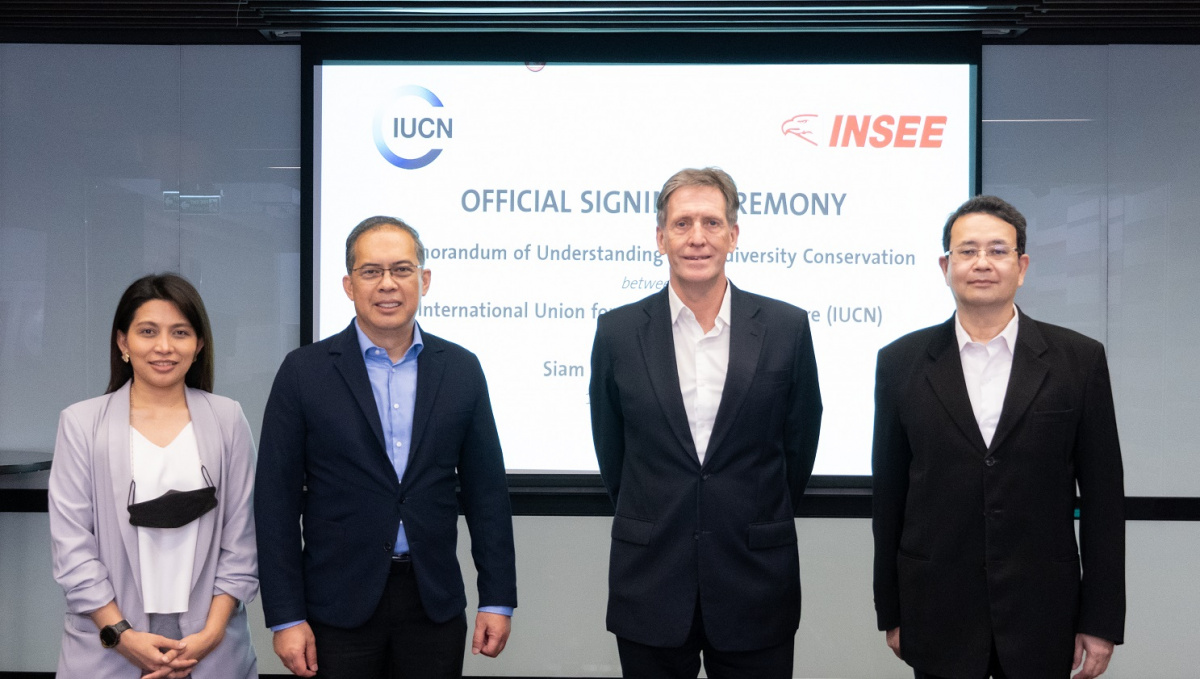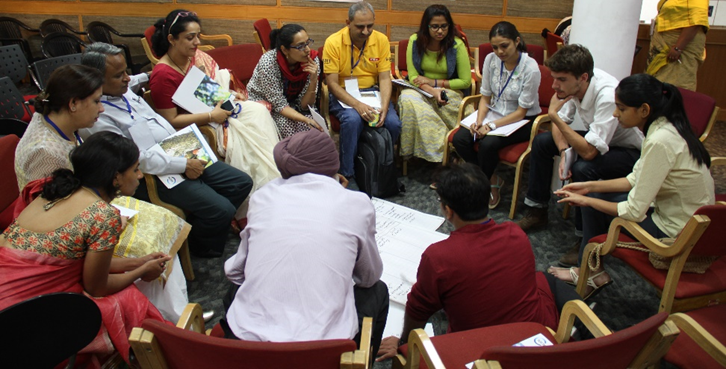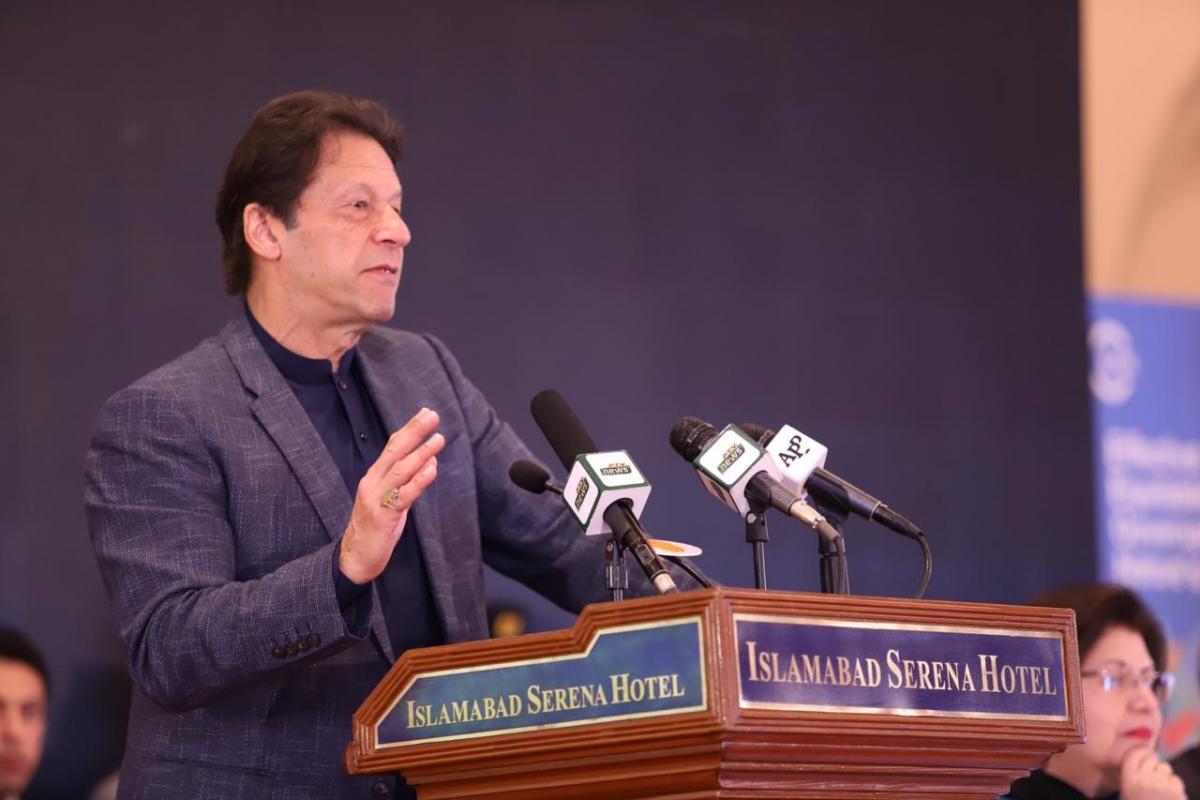Dompe Division Join Hands with the Kelani River Multi-Stakeholder Partnership
As part of the operationalizing of the Kelani River Multi-Stakeholder Partnership Approach (KRMP), IUCN partnered with Brandix Limited (www.brandix.lk) to promote Public-Private-Community Partnerships (PPCPs) to conserve the Kelani River Basin. The first workshop to mobilize the public officials attached to Divisional Secretary office including Grama Niladari officers, Non-Government entities and Private sector in the area was held at the Hanwella Holiday Resort in Hanwella on 13 October 2017.
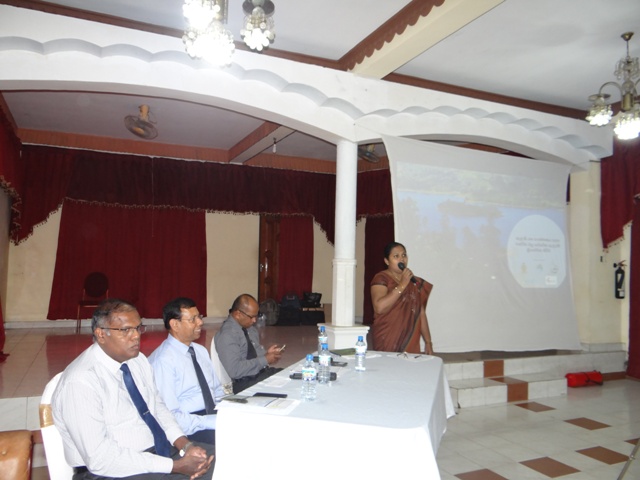
Ms H. G. J. P. Wijesiriwardhana, the Divisional Secretary of Dompe addressing the gathering
Photo: @IUCN/Krishani Peiris
Ms H. G. J. P. Wijesiriwardhana, the Divisional Secretary of Dompe, inaugurated the event and highlighted the importance of the Kelani River for the area taking into considerations the livelihoods, water supply, agriculture and many other industries supported by the river and its ecosystem. Special emphasis was made on the loss of recreational activities, which were done in the past and the change in water quality due to man-made and natural pollutants. Mr T. Sumanaweera, Deputy General Manager (Production) of National Water Supply and Drainage Board, also participated in the event.
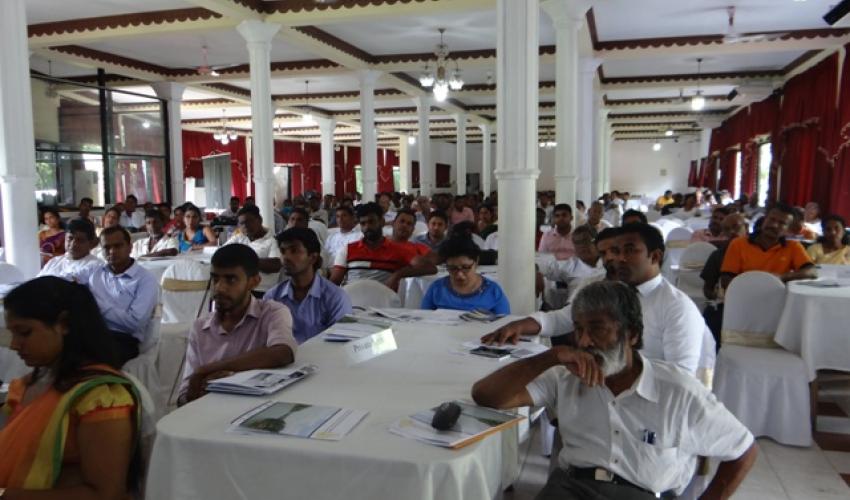 Photo: @IUCN/Krishani Peiris
Photo: @IUCN/Krishani Peiris
Around 220 volunteers representing 22 Grama Niladhari Divisions (GND) (Udamapitigama, Pattiyagama, Lansiyahena, Kaugoda,Thithapaththara, Nikawala, Welgama, Ovitigama, Pugoda, Kumarimulla, Bangalawaththa, Malwana etc.) along with private sector operating in this Divisional Secretariat area represented by Nelna Farm, GM Metal Packaging, Damro Industries, Hovael Construction, New Anthony’s Farm, Pussella Meat Producers (Pvt) Ltd, Link Natural Products and South Asia Textiles participated. The workshop was facilitated by Mr Jinasiri Dadallage, former Secretary, Ministry of Public Administration and Dr Ananda Mallawatantri, Country Representative of IUCN.
Dr Mallawatantri briefed the participants on the KRMP approach, reasons for the current pollution issues in the river and water quality of 71 minor watersheds in the Kelani River Basin. Stream water quality within the Dompe Divisional Secretariat was also discussed. The urgency in paying attention to ensure the environment conditions in Kelani River basin to save the employment options and drinking water quality was highlighted.
Mr Jinasiri Dadallage facilitated a session covering a result oriented approach for environmental protection and how individuals, communities and others could systematically participate in Kelani River Basin pollution control. He highlighted the need for accountability, leadership, awareness, responsiveness and transformation to protect the environment. Mr Dadallage explained how the village level planning can be strengthened using a simplified socioeconomic survey tool to create baseline indicators. The baselines generated will enable the village level groups to plan the interventions, implement and monitor. Village level interventions will be implemented at Grama Niladhari Division levels for coordination purposes.
The participants were given instructions/guidance along with google maps to identify the requested data comprising of households, agriculture, services, environment, health and livelihoods. The event also served as a platform for the participants, especially for those in the private sector, to bring out and voice pressing issues that hinder them in preserving their surrounding environment.
During the discussion the participants highlighted the practical problems they face due to industrial discharges and lack of knowledge on technologies in waste management. Participants agree to work together at Grama Niladari levels and develop action plans within a month. The KRMP PPCP approach is being implemented in nine DS divisions funded by Brandix Lanka and implemented by IUCN Sri Lanka.
